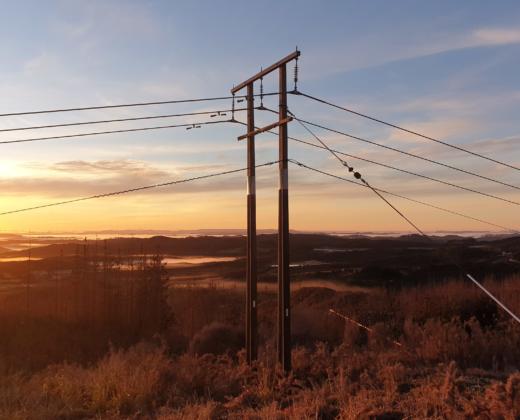Helping our tamariki stay safe in the water
E tiakina ana ā tātou tamariki kia haumaru i te wai
keep reading
The Ngāwhā Geothermal Power Station (OEC4), one of the largest projects undertaken in Northland, was officially opened today by Hon Kelvin Davis, MP for Te Tai Tokerau, in collaboration with Parahirahi Ngāwhā Waiariki Trust and Ngāti Rangi.
Top Energy Chief Executive Russell Shaw says the 32 Megawatt (MW) $189 million station secures an independent, affordable and renewable power supply, ending the region’s reliance on the National Grid and electricity transported from the south.
Mr Shaw describes the three year construction programme as intense and reflected on the collective effort of staff and contractors to deliver the power station six months early - despite COVID-19 related delays.
“This was a complex project with so many interrelated aspects requiring local and international expertise from Northpower, Network Waitaki, United Civil Construction, Iceland Drilling, Culham Engineering and Israeli firm ORMAT.”
Mr Shaw also acknowledged the support of the Top Energy Consumer Trust.
“Without the Trust’s backing and major transaction approval the Ngāwhā expansion programme would not have gone ahead.
“The trustees have truly represented the interests of all Far North energy consumers connected to our electricity network by supporting the construction of the new geothermal power station.”
Over 1 million cubic metres was excavated during the civil works, three production and three injection wells from a depth 1,350 and 1,750 metres were drilled, and extensive pipeline construction to bring the hot geothermal fluid from the production wells to the power station and cooled fluid back to the injection wells.
But most critically, Mr Shaw says, was the need to determine the viability of the geothermal resource to ensure it had the capacity and heat to power the station. This was confirmed late in 2018 after drilling and provided the confidence to continue the expansion programme.
“It was an absolute cause for celebration when after a three month commissioning period, and an extraordinary year, the station exported its first power to the electricity network on New Year’s Eve.”
“You can imagine the resolutions that were being made that night.”
Generation capacity at the Ngawha geothermal power station has more than doubled to 57MW and will supply all of the Far North's electricity demand for 97% of the year. Excess power is exported from the power station to the rest of Northland through the National Grid.
Prior to new station coming on stream, electricity from the existing two Ngāwhā geothermal power stations with a combined capacity of 25MW was exported south only about 2 per cent of the time.
Mr Shaw says the new Ngawha Geothermal Power Station is the culmination of decades of resource planning and consenting, working with Parahirahi Ngāwhā Waiariki Trust and Ngāti Rangi,
community engagement, and negotiation with regulators.
“It has utterly transformed the way in which the Far North receives its electricity to become self-reliant.”
Now that OEC4 is generating electricity, Top Energy starts a three year period of monitoring the geothermal field.
This is to ensure that the field performs in a similar way to the model prepared by GNS Science in support of the resource consent application. OEC5, the next 32MW station, is already consented, subject to confirmation of the performance of the field but will only proceed if an acceptable business case can be developed.
In the coming years, the company will monitor market conditions to determine whether OEC5 should proceed. The OEC5 investment will also be subject to a Major Transaction Approval by the TopEnergy Consumer Trust.
You can see how the Ngāwhā Geothermal Power Station works by viewing th video below.
For more information please contact Philippa White 021 241 8740.

Find out more about how we work within the Far North community to help create a healthy and prosperous region
Find out more